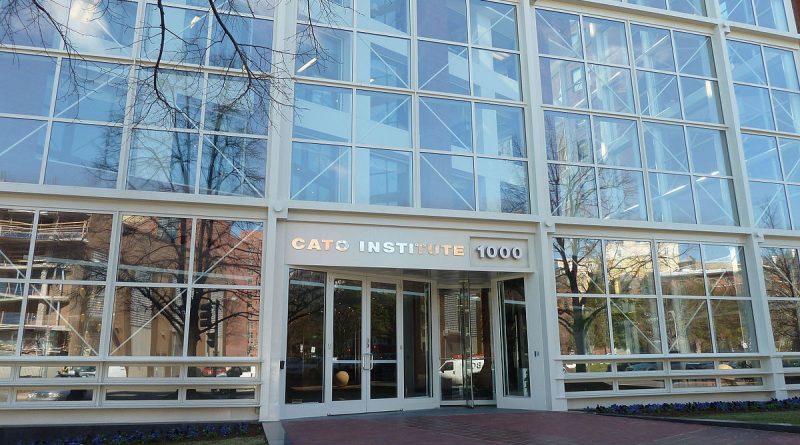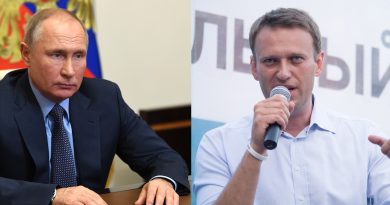Cato Institute Defense Policy Director Talks Nuclear Policy and U.S.-China Relations
Timothy Georgetti
Staff Writer
On November 11, Eric Gomez, the Director of Defense Policy Studies at the Cato Institute, held a presentation comparing the nuclear weapons policies of the Trump and Biden administrations. Mr. Gomez also discussed China’s nuclear arsenal in relation to the United States, and the growing tensions among China, the United States, and Taiwan. The event was hosted by Seton Hall’s chapter of the John Quincy Adams Society. The presentation was soon followed by a question and answer session with the attendees.
The crux of Mr. Gomez’s remarks compared how the Trump administration and the Biden administration viewed the role of nuclear weapons in American geopolitical strategy and global diplomacy. Mr. Gomez pointed out that the Biden administration is facing a unique strategic landscape that will likely dictate the way his administration will differ in its use or focus on nuclear weapons. He said that Biden is likely to follow the theoretical framework of the past Obama administration by emphasizing the fact that the United States currently relies on nuclear weapons to accomplish “too big of a job” when it comes to national security. While the Biden administration has not released a Nuclear Posture Review yet, Mr. Gomez predicted that when released, it will most likely reflect Obama-era policies than those of the previous administration.
However, he did note that Biden will likely be unable to operate under the same policies as his Democratic predecessor . Mr. Gomez described that the Trump administration’s decision to withdraw from key arms control agreements, like the Joint Comprehensive Plan of Action with Iran, provides new threats unique to the Biden administration. The increased likelihood that the JCPOA will not be revived, combined with China expanding its ICBM capacity, and the fact that North Korea is looking to develop tactical nuclear weapons, all led Mr. Gomez to conclude that the Biden administration will likely have to prioritize American nuclear weapons more than it would like to in its foreign policy decisions.
Mr. Gomez then opened the presentation to questions from the audience. A majority of the questions asked by the attendees were about the current American Chinese tensions. Mr. Gomez emphasized how worried the United States should be about the recent expansion of the Chinese nuclear arsenal. He focused on the shift in doctrine taking place in Beijing rather than the numerical increase in China’s arsenal. Even if China were to build 250 intercontinental ballistic missiles, the United States would still field a substantial advantage. However, he stated that the United States should be worried about the aging information it has on internal Chinese nuclear doctrine. He explained that the most recent documents were made public by the Chinese over three years ago, while older doctrinal statements are now more than a decade old. Mr. Gomez suggested that a change in Chinese doctrine could pose even more dangerous than an arsenal size increase if American policymakers wrongly assume that the Chinese are operating under their old play book; secret doctrinal shift increases the chance of miscalculation and thus the chance of unwanted armed conflict.
Mr. Gomez closed his presentation with a discussion about the United States’ policy of “Strategic Ambiguity” in regards to Taiwanese independence from China. He noted that, while the United States does not explicitly say it will defend Taiwan, the prevailing logic in Washington is that the United States will come to the aid of the Taiwanese unless it provokes China. Mr. Gomez also asserted that “Strategic Ambiguity” forces China to consider the involvement of the United States when making any calculations about Taiwan. Since no formal declaration of support has been given to the United States, this policy can effectively influence Taiwan’s behavior by making such support contingent on doing as the United States says. The Bush administration took such an advantage in 2000. The then Taiwanese president wanted to formally declare independence from China, but due to American threats that they would not intervene if such a declaration provoked a Chinese attack, the Taiwanese administration backed down.
Timothy Georgetti is the president of the John Quincy Adams Society at Seton Hall.
Image courtesy of Tedder (Wikimedia Commons)


